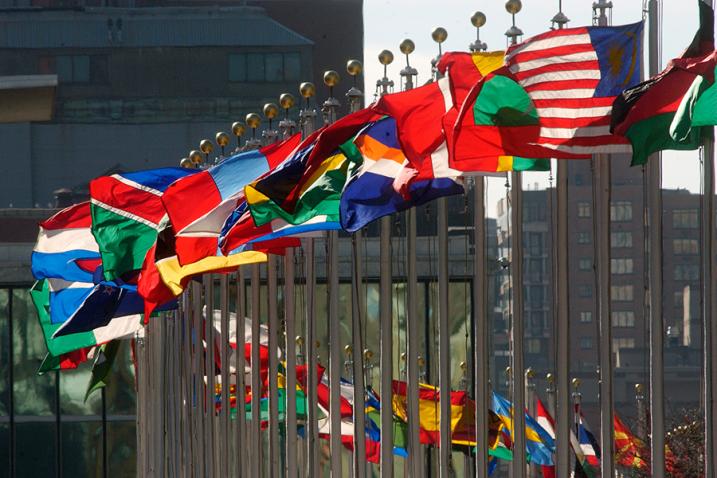The advent of the UN Convention on Human Rights marks a significant milestone in international law and ethical discourse. The principles underlying this convention serve to illuminate the path toward universal dignity and justice. Yet within the rich tapestry of these ideals lies a variety of interpretations, particularly through the lens of Christian doctrine. This dichotomy poses an intriguing question: How do the universal principles of human rights correlate with Christian teachings on morality and justice? At what point can Christians engage critically with these international frameworks without undermining their theological tenets?
To fully grasp the implications of the UN Convention on Human Rights, it’s essential to explore its foundational principles. At its core, the Convention is framed around the inherent dignity of every human being. It emerges from the notion that every individual, regardless of nationality, ethnicity, or creed, is entitled to certain inalienable rights. This premise resonates deeply with the Christian belief in the inherent worth of every person as made in the image of God (Imago Dei). Thus, Christians can embrace the Convention’s core principles, such as the right to life, liberty, and personal security, as congruent with their understanding of divine justice.
However, the UN Convention does not exist in a vacuum. It intertwines with numerous cultural, legal, and philosophical paradigms that may challenge or even contradict Christian doctrine. For instance, the Convention’s stance on issues like reproductive rights and gender identity raises eyebrows in some Christian circles. Such matters invite serious deliberation regarding the sanctity of life and the definition of human flourishing as articulated in sacred texts. Can human rights be upheld without compromising the moral compass outlined in Scripture?
Moreover, the UN Convention promotes the idea of non-discrimination and equality before the law. It champions the principle that rights belong universally to all individuals without favoritism. While this ethos is commendable, it begs further investigation concerning the Christian interpretation of sin, repentance, and redemption. The Great Commandment instructs believers to love their neighbors, yet this love must grapple with complex issues of moral relativism. Do the rights encoded in international law sufficiently encompass the nuances of Christian moral teaching, or do they risk diluting the severity of sin?
Challenges arise in reconciling these principles with the Christian worldview, especially in addressing the dichotomy between legal rights and moral responsibilities. The UN Convention emphasizes individual autonomy and freedom, which some Christians may interpret as relativism that jeopardizes communal obligations and biblical mandates. When individual rights supersede collective moral responsibilities, does society risk succumbing to a state of chaos where self-interest reigns supreme? Such concerns echo the biblical admonitions toward community, service, and sacrificial love.
In light of these challenges, some Christians advocate for an engaged and discerning theological approach to human rights. They advocate for a Christian humanism that appreciates the strengths of the UN Convention while remaining rooted in scriptural authority. This approach draws not only on the dignity of individuals but emphasizes the necessity of community and fraternity, reflecting a holistic understanding of humanity wherein both individual rights and communal responsibilities coalesce.
The critique of the UN Convention extends beyond theological discussions. Skeptics, both within and outside Christian communities, often cite the practical efficacy of human rights frameworks. Are there instances where the promotion of rights has spurred conflict rather than peace? The Convention posits that rights should lead to a harmonious co-existence, yet detractors argue that it has sometimes led to cultural imperialism, where Western values are imposed on diverse cultural contexts, undermining established local customs and beliefs.
One must ponder the balance between universal rights and cultural specificity. How do Christian ethics address the intricate interplay between global human rights and local traditions? This inquiry leads to a fertile ground for dialogue within the church and the broader community, urging individuals to foster a discourse that respects cultural expressions while holding steadfast to the integrity of Christian teachings.
Furthermore, Christian engagement with the UN Convention invites close examination of the roles of local congregations and organizations. The Church is historically a bastion for social justice initiatives, fostering communities of compassion and mercy. The principles of the UN Convention resonate through outreach, advocacy, and service to the marginalized. The challenge lies in remaining faithful to biblical imperatives while envisaging a world in which the UN’s ideals are not merely aspirational, but lived realities.
As Christians navigate the multifaceted implications of the UN Convention on Human Rights, a holistic engagement emerges as essential. This requires an embrace of dialogue that authentically intertwines scriptural teachings with contemporary ethical discussions. Individual believers and faith communities are thus called to be catalysts for change, advocating for human rights while gently holding onto the depth of Christian doctrine.
In conclusion, the relationship between the UN Convention on Human Rights and Christian ethics is both intricate and pivotal. It invites believers to reflect on their understanding of dignity, liberty, and justice vis-à-vis their faith. Ultimately, striving for a world where all individuals are honored and valued aligns deeply with the Christian mission, yet it also challenges the Church to discern, adapt, and proclaim the timeless truths of the Gospel in a rapidly evolving global landscape. Through this lens, Christians are tasked with not only understanding rights but advocating for a vision of justice rooted in love, humility, and grace.



